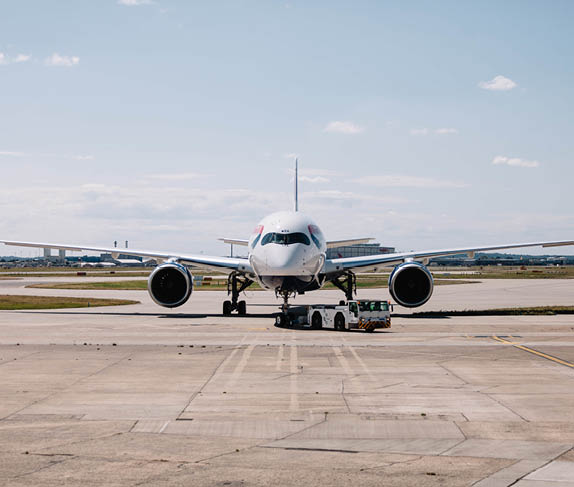Airbus has revealed new research into the impact seat width makes to levels of passenger comfort on board long haul economy flights; calling on the aviation industry to set a minimum standard of 18 inches (45.72cm) in order to improve the comfort of long haul air travel.
The ground breaking research conducted by Harley Street medical practice The London Sleep Centre using polysomnography to record every standard physiological sleep measurement - including monitoring brainwaves, eye, abdominal, chest and hip leg movement - on a selection of passengers revealed that a minimum seat width of 18 inches improved passenger sleep quality by 53% when compared to the 1950's 17 inch standard.
Dr Irshaad Ebrahim MBChB MRCPsych of The London Sleep Centre commented: "The difference was significant. All passengers experienced a deeper, less disturbed and longer nights' sleep in the 18 inch seat. They went from one sleep stage to the next as you would expect them to do under normal circumstances. Whilst, in the narrower 17 inch seat the passengers were affected by numerous disturbances during sleep - which meant they rarely experienced deep restorative sleep. When it comes to flying long haul in economy, an inch makes a huge difference on passenger comfort."
Air Transport has changed significantly over the last 50 years. There are more passengers, flying further for longer distances. In the last 5 years alone the number of flights over 6000 nautical miles (13+ hours flight time) has increased by 70% from 24 to 41 daily flights. In 1998 no flight over 7000 nautical miles had ever taken place. In the next 15 years passenger traffic will double and by 2032, the world's airlines will take delivery of more than 29,220 new passenger and freighter aircraft.
Kevin Keniston, Airbus' Head of Passenger Comfort comments: "If the aviation industry doesn't take a stand right now then we risk jeopardising passenger comfort into 2045 and beyond - especially if you take into account aircraft delivery timetables combined with expected years in service. Which means another generation of passengers will be consigned to seats which are based on outdated standards."
Airbus has always maintained a standard of 18 inch (45.72cm) minimum in its long haul economy cabins. However, other manufacturers are eroding passenger comfort standards by going back to narrower seat widths from the 1950s in order to remain competitive.
Changing BMI's and perspectives on personal space have encouraged other industries, such as leisure and automotive, to re-think seat width. And recent research conducted into long haul economy passengers across international airports** revealed that seat comfort is now the most important criteria when booking a long distance flight in economy, even over the schedule of the flight.
Kevin Keniston adds "Our research reveals that not only does seat width have a dramatic impact on passenger comfort but also there is now a growing cohort of discerning economy passengers who are not prepared to accept long haul 17 inch crusher seats. Instead they will choose airlines that offer better seat comfort, often turning to social media or specialist websites to determine true seat value. Thankfully passengers these days have a choice and they are choosing to put comfort first. We are encouraging them to be aware of the difference an inch makes in long haul economy

